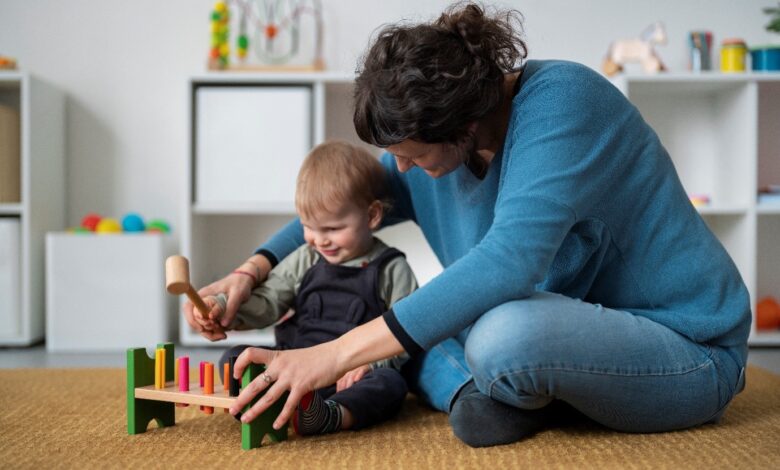How to Build a Support System for Your Child with Disabilities: Tips for Parents

This is one of the most rewarding and challenging things about parenting a disabled child. A rich support system can provide the services that your child wants to be able to get what they deserve for care, education, and equal opportunities. From the National Disability Insurance Scheme and focusing on disabilities for children to create a good environment that lets your child empower themselves, their life will prosper.
Know Your Child’s Requirements
The first strategy in building a support network effectively is understanding what your child uniquely needs. There are a thousand different disabilities, and each child may need a different approach in caring for them. To begin with, consider the following
See also: Physical and Mental Health Risks of Fire Contaminants
Medical and Developmental Needs Assessment
Collaborate with the healthcare team for an assessment of medical, emotional, and developmental requirements.
NDIS Child Care Services
The NDIS is one of the key services for those children with disabilities who stay with their parents in Australia. Under this program, the parent gets an opportunity to have a number of services and support systems they may require to cater to the child’s needs. Some of the ways by which NDIS can assist your child include:
Therapy Sessions:
Under the NDIS, your child receives all sorts of therapy: speech therapy, physiotherapy, and occupational therapy, with the betterment of their skills.
Support Workers:
NDIS child care support workers can help with daily activities, school routines, and social engagement, which can be a huge relief for parents.
Assistive Technology:
Funding for tools and equipment, such as mobility aids and communication devices, enhances your child’s independence.
Early Intervention Programs:
Early intervention services deal with developmental delays and challenges at the appropriate peak growth times, so your child can be maximally prepared for his or her potential.
Support System of Professionals
Disability support for children consists of well-qualified professionals who can positively influence your child’s life. Such professionals shall include pediatricians and specialists for checkups and other professional medical attention given to the child.
Therapists: Speech, occupational, and physical therapists assist individual developmental and physical needs.
Educators: Work with educators and special education professionals to prepare an inclusive environment for learning.
Engage Your Community
You and your child will appreciate support from community services. Building relationships, establishing families, and gaining community organisations for help can be quite beneficial to the emotional as well as functional parts of parenting. Here is how to contact:
Support Groups:
Support groups for parents serve as avenues through which experience and advice may be shared between like-minded members seeking encouragement.
Be Part of Community Programs:
Look for community-based activities, like sports, arts, or recreational programs targeted for children with disabilities.
Advocacy for Inclusion
Work with schools, organisations, and officials at the local level to make sure that children with disabilities can participate in a society and become more easily accessible.
Foster Independence
One of the best gifts to give your child would be the strength to be completely independent in life. Develop skills leading to independence.
Promote an Autonomy Nature of a Child
Let them know to make choices appropriate for their age, capacity, etc.
Educate life skills concerning dressing, preparing food, how to manage and conserve money, and the rest taking into consideration their capabilities.
Develop Social Skills:
Invite your child to make friends and participate in group work so that their self-esteem as well as their ability to interact improves.
Take Care of Yourself
Building a support system for yourself is just as important:
Seek Respite Care: Use respite care services to take breaks and recharge.
Prioritise Your Health: Live healthily, consider counselling, and be supportive of people around you.
Be Informed: Learn about your child’s rights to disability, updates concerning NDIS, and other available resources that will support better advocacy for your child.
Planning for the Future
Building your support system means planning for long-term well-being for your child:
Set goals: Work with your child to determine their short- and long-term goals that could align with aspirations and abilities.
Explore financial resources: Special needs trusts or funding through NDIS can ensure future financial resources for your child.
Transition planning: Work with professionals and support networks to prepare for significant transitions, such as leaving school and entering adulthood.
Final thoughts
Creating a full support system for your child with disabilities requires dedication, collaboration, and proactive planning. Parents can empower their children to reach their full potential by utilising NDIS child care services, connecting with professionals and community resources, and fostering independence. You are not alone in this journey; seek support, stay informed, and take steps to build a brighter future for your child.





